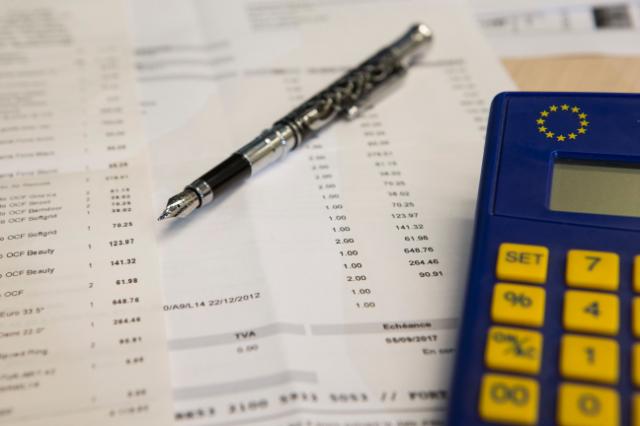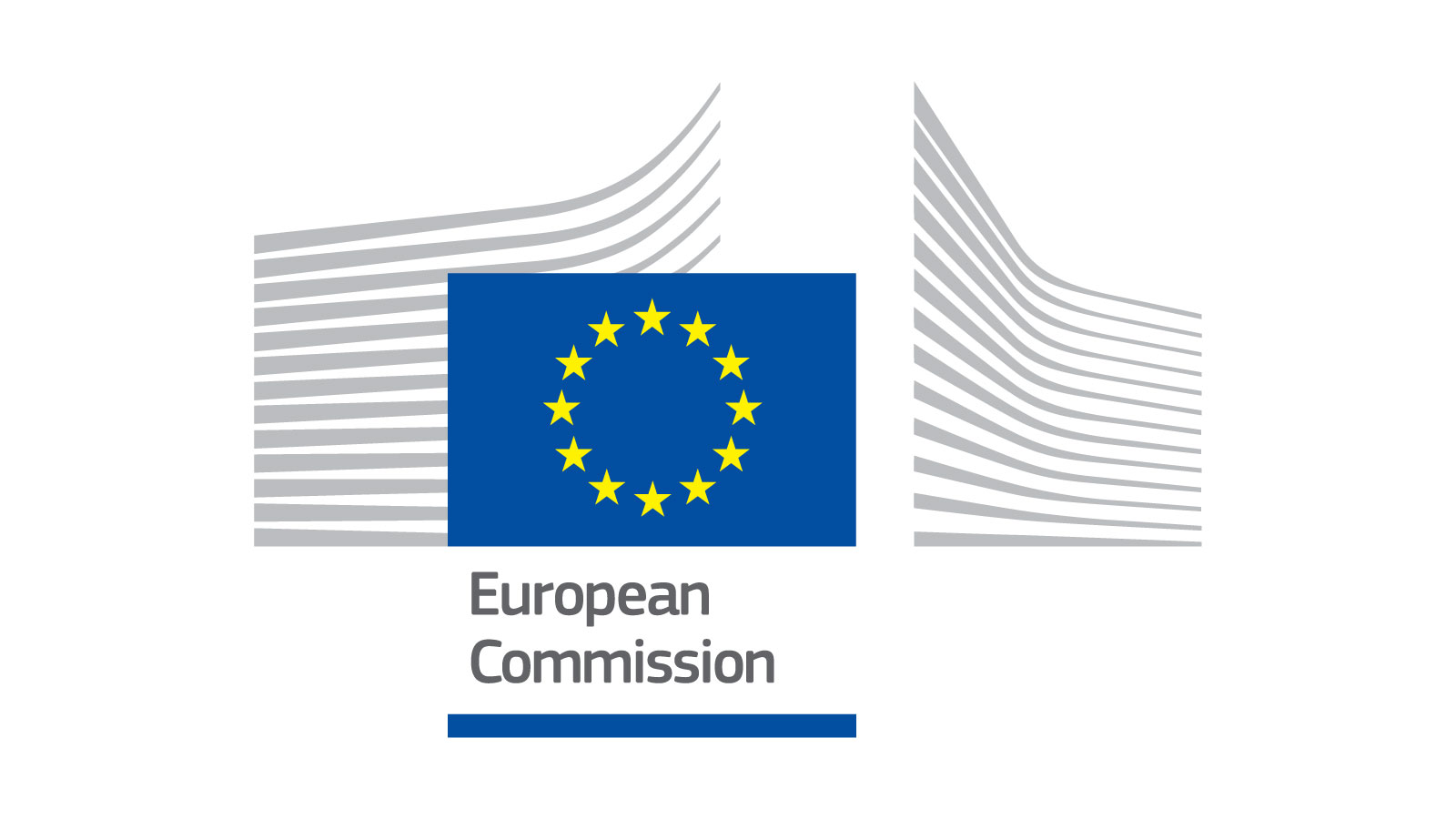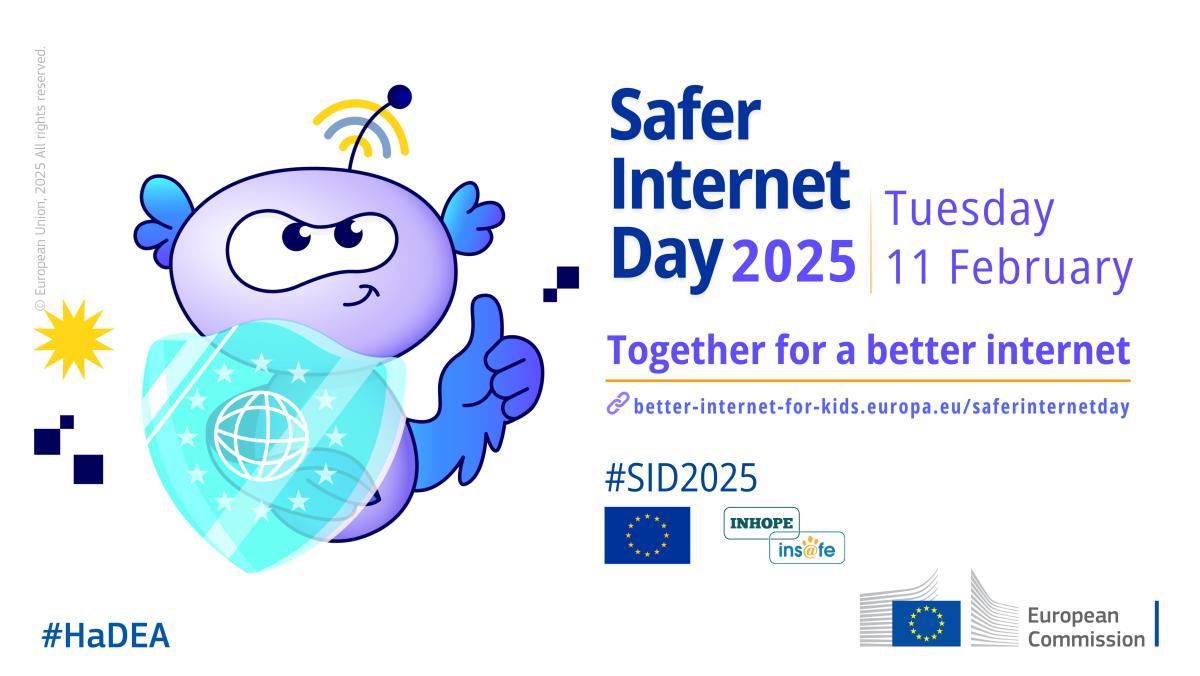Politics
Together for a better internet



DISCLAIMER: Information and opinions reproduced in the articles are the ones of those stating them and it is their own responsibility. Publication in The European Times does not automatically means endorsement of the view, but the right to express it.
DISCLAIMER TRANSLATIONS: All articles in this site are published in English. The translated versions are done through an automated process known as neural translations. If in doubt, always refer to the original article. Thank you for understanding.

Safer Internet Day promotes safer and more responsible use of online technology, especially for children and young people.
This year, it takes place on 11 February and calls on stakeholders around the globe to take concrete steps to make the internet safer and more inclusive for all. Celebrations and awareness activities will take place throughout February and everyone is invited to join the movement.
In the EU, 97% of young people use the internet daily. The EU is committed to ensuring everyone is safe online. As minors are among the most vulnerable groups, the EU has put a specific focus on protecting them through various initiatives:
- Digital Services Act: to combat cyberbullying, illegal content, disinformation, and others. It mandates that online platforms implement stronger safeguards for minors, including parental controls, age verification, and limits on targeted advertising.
- Safer Internet Centre network: to offer awareness campaigns, helplines, hotlines, and youth participation services. They equip children, parents, and educators with tools and knowledge to recognise online threats and report harmful content.
- Better Internet for Kids: a strategy to create safer digital experiences for children. It protects them from harmful and illegal content, creates an age-appropriate digital environment, equips them with the necessary digital skills to empower them and supports their participation in shaping internet policies.
Safer Internet Day started as an EU initiative in 2004 and has since grown into a global movement, celebrated in over 180 countries each year. By working together, policymakers, industry representatives, civil society organisations, educators, and young people themselves help create a safer digital world for future generations.
For more information
Safer Internet Day
The Digital Services Act
Safer Internet Centres
Better Internet for Kids
Source link
More from the author
– EXCLUSIVE CONTENT –
Politics
Parliament green lights update of VAT rules to make them fit for digital times | News



DISCLAIMER: Information and opinions reproduced in the articles are the ones of those stating them and it is their own responsibility. Publication in The European Times does not automatically means endorsement of the view, but the right to express it.
DISCLAIMER TRANSLATIONS: All articles in this site are published in English. The translated versions are done through an automated process known as neural translations. If in doubt, always refer to the original article. Thank you for understanding.

On Wednesday, Parliament’s plenary approved the changes to the rules that member states indicated in November they wished to make to the VAT Directive. MEPs approved the rules with 589 votes in favour, 42 against and 10 abstentions.
These changes will require that by 2030 online platforms must pay VAT for services provided through them in most of the cases where the individual service providers do not charge VAT. This will put an end to a distortion of the market because similar services provided in the traditional economy are already subject to VAT. This distortion has been most significant in the short-term accommodation rental sector and the road passenger transport sector. Member states will have the possibility of exempting SMEs from this rule, an idea which Parliament had also pushed.
The update will also fully digitalise VAT reporting obligations for cross-border transactions by 2030 with businesses issuing e-invoices for cross-border business-to-business transactions and automatically reporting the data to their tax administration. With this, tax authorities should be in a better position to tackle VAT fraud.
To simplify the administrative burden for businesses, the rules beef-up online VAT one-stop-shops so that even more businesses with cross-border activity will be able to meet their VAT obligations through a single online portal and in one language.
Background
This update to the VAT rules has been over two years in the making. On 8 December 2022, the Commission presented the ‘VAT in the digital age’ package (ViDA package) which consisted of three proposals. One of these was the update to the VAT directive of 2006.
The Commission has calculated that Member States will recoup up to €11 billion in lost VAT
revenues every year for the next 10 years. Businesses will save €4.1 billion a year over the next 10 years in compliance costs, and €8.7 billion in registration and administrative costs over a ten year period.
Source link
More from the author
– EXCLUSIVE CONTENT –
Politics
Baltic states join European continental electricity grid


© FRVS+MPCP 2022. The European Times® News is registered as an EU Trademark. All rights reserved. The European Times® and the logo of The European Times® are EU trademarks registered by FRVS+MPCP.
Members/Partners of

About Us
Popular Category
DISCLAIMER OPINIONS: The opinions of the authors or reproduced in the articles are the ones of those stating them and it is their own responsibility. Should you find any incorrections you can always contact the newsdesk to seek a correction or right of replay.
DISCLAIMER TRANSLATIONS: All articles in this site are published in English. The translated versions are done through an automated process known as neural translations. If in doubt, always refer to the original article. Thank you for understanding.
DISCLAIMER PHOTOS: We mostly used photos images that are readily available online, from free sources, or from the people promoting the news. If by any chance it happens that we have used one of your copyrighted photos, please do not hesitate to contact us and we will take it down without question. We do not make profits as this is a not for profit project to give voice to the voiceless while giving them a platform to be informed also of general news, and it is completely free.
Editor Picks
Politics
Safer Internet Day – Together for a better internet

Join our new mascot Ally on 11 February 2025, as we come together to celebrate Safer Internet Day and promote a safer, smarter online world.
Safer Internet Day is all about empowering people, especially children and young people, to navigate the digital world safely and positively. From tackling cyberbullying to understanding social networking and digital identity, the campaign highlights key online challenges and emerging concerns.
Under the Digital Europe 2023-2024 Work Programme €21.4 million has been allocated to co-fund Safer Internet Centres (SICs) across 26 EU countries, plus Albania and North Macedonia. These centres play a crucial role in promoting online safety by providing educational resources, public awareness tools, and essential counselling and reporting services. Through dedicated helplines and hotlines, SICs support children, parents, educators and professionals working with young people, helping to create a safer and more informed digital environment for all.
During its presidency of the Council of the European Union in 2025, Poland has prioritised the protection of children from online exploitation, while also addressing the mental health challenges faced by young people in digital environments.
The Polish Safer Internet Centre, co-funded under the Digital Europe Programme and operated by a consortium of the national research institute NASK and the Empowering Children Foundation, has been promoting online safety since its establishment in 2005.Its key initiatives focus on combating illegal online content, supporting young internet users, parents, and professionals in addressing digital threats, and promoting the responsible use of new technologies.
As we look ahead to Safer Internet Day 2025, the Polish slogan, “#działajmy razem” which translates to “Let’s act together!” reinforces the spirit of collaboration. On Safer internet Day, the Polish Safer Internet Centre actively engages leading IT businesses to support Safer Internet Day initiatives. Additionally, key national institutions, including the Prime Minister’s Office and the Ministry of Education and Science, are invited to grant honorary patronage to the event, highlighting its national importance.
Background information
The Digital Europe Programme (DEP) aims to build the strategic digital capacities of the EU and to facilitate the wide deployment of digital technologies. With an overall budget of €7.5 billion, out of which €0.8 billion is managed by HaDEA, the programme will support investments in the following sectors:
- High Performance Computing
- Cloud, data and Artificial Intelligence
- Cybersecurity
- Advanced digital skills
- Accelerating best use of technologies
HaDEA manages actions under Cloud, data and Artificial Intelligence, Advanced Digital Skills and Accelerating best use of technologies.
Source link
-
Travel6 days ago
Brussels to Venice night train’s maiden voyage ‘couldn’t even enter Italy’: Here’s why
-
Travel6 days ago
Santorini earthquakes: What to know if you have a holiday booked to the popular Greek island
-

 Sports6 days ago
Sports6 days agoFrench Cup 2024-2025: Bourgoin Jallieu-Reims, the likely lineups
-

 Sports4 days ago
Sports4 days agoSerie B: Sassuolo stretches ahead of Pisa, Sampdoria beats Modena and exits playout zone
-

 EU & the World6 days ago
EU & the World6 days agoWhere to Watch ‘Apple Cider Vinegar’: How to Stream the Belle Gibson Show
-

 Sports5 days ago
Sports5 days agoMarc Marquez goes fast: Pecco Bagnaia doesn’t get spooked
-
Travel6 days ago
Tourism Commissioner to consult widely on hotspot sustainability
-

 Sports5 days ago
Sports5 days agoAlessia Orro sets her next goal








